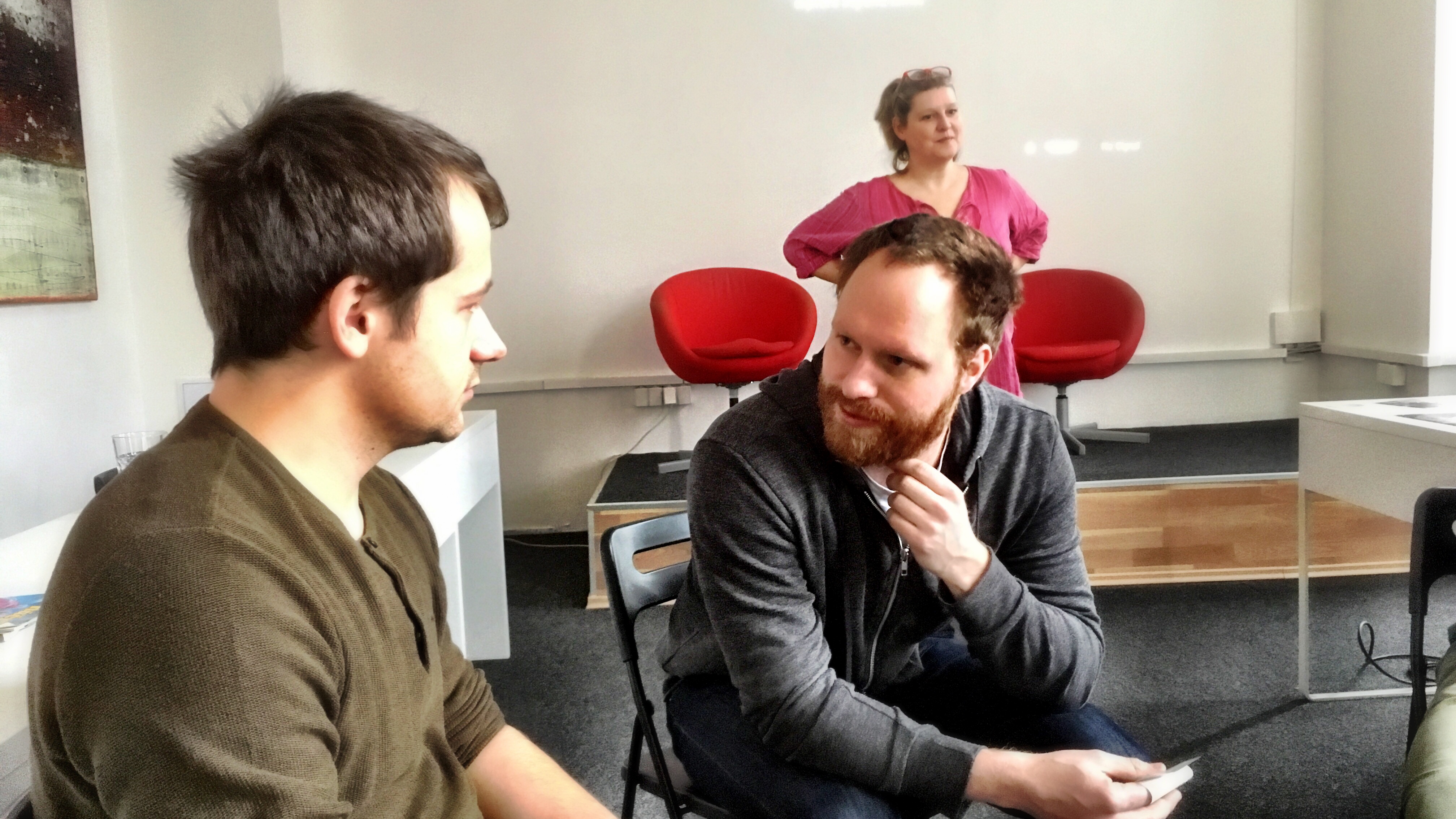Blockchain Founders Need StartupYard: SY Alum Dite Gashi
Dite Gashi is the founder and CEO of Decissio, the blockchain powered investment management and smart-contracts platform that was accelerated at StartupYard this year. Dite has called Decissio the “Jarvis” of investment decision making. The company is working to build a data platform that helps venture investors and professional portfolio managers to actively manage their investments, based on blockchain verified and real-time data.
Dite has been a leading voice in the blockchain movement for years, and represented the first startup at StartupYard to focus on the technology. I caught up with Dite this week to talk about the future of Blockchain, and why startups in the space need accelerators like StartupYard now more than ever. Here’s what he had to say:
Hi Dite, you’ve been working with Blockchain technology for almost as long as it has been around. Tell us how you got into Blockchain, and why it still fascinates you.

Dite Gashi, left, participating in StartupYard’s voice training workshop
Blockchain has been an obsession of mine from when it came out as a research paper, all the way up to Bitcoin and Ethereum. My background is in computer science, business management and economics. This knowledge base, fueled by curiosity, allowed me to dive deeper into blockchain concepts first and then into their applications in the world of business quicker than the mainstream world, which to this day I believe has a superficial understanding of blockchain as an innovation.
What doesn’t the mainstream business world understand about Blockchain?
Most of the mainstream business world seems to be in a state of needing to get a piece of the action when it comes to this technology. I’ve literally heard phrases like – we are talking to you because our CEO said “we need blockchain.”
Why 'we need Blockchain' isn't a good reason to work with most Blockchain #startups - Dite Gashi speaks out. Share on XThe fear of missing out is big. I’d go as far as to say that’s the money that keeps most blockchain startups running. Wanting to be part of the new revolution is totally fine, however the way that they go about it tends to be sub-optimal. Investors sometimes invest in shady schemes and promising ICO’s (Initial Coin Offering) without proper tech due diligence and auditing, just to find out a few months down the line that the tokens they got are suddenly worthless.
I think the greatest misconception lies in not understanding the basic utility that blockchain provides, which in most cases boils down to somehow cutting out the middle man. Only after understanding it, can you think of an investment opportunity through the filter of whether a blockchain application would be the best for that particular purpose. There are many applications out there who would do fine without blockchain.
You attended StartupYard as part of Batch 7 earlier this year. What do you think that other founders with Blockchain ideas can get out of StartupYard?
Having been present in the blockchain sphere for a while I can attest that most blockchain people tend to be technologically inclined, or as the world likes to call them, nerds. They have strong technical skills that they apply or a great ability to understand and aim to solve important problems. I believe that is great for building technology blocks, innovating and bringing about thought provoking questions of alternate models of functioning.
Where the blockchain community does fall short though is the ability to reach out to people. I believe blockchain founders can learn about marketing, how to sell and how to communicate with masses. They can better refine their offerings to match the needs of the market – something that many startups miss.
Right now we are seeing a sort of valley between the promise of Blockchain innovation and the realities. Right now, the technology is too geeky and complex for ordinary people to use, and too fringy and speculative for corporations to really get behind it. A team I put together last month took 2nd place in the KB Fintech Hackathon in Prague, working on a blockchain contract verification system, so it’s obvious that banks are starting to see real potential in the technology.
Still, we are in the very early days, and blockchain founders are going to need a lot of exposure to the perceptions and expectations of existing industries, in order to come up with solutions that have a chance of being adopted widely. StartupYard is an ideal environment for a really speculative technology to come face to face with the hard reality of the market. I think Decissio is a perfect example of that: all the traction we’ve gained has been thanks to the feedback we got directly from potential customers at StartupYard.
What do you see as the biggest barriers for Blockchain founders right now?
Probably more than any area in tech in recent history, blockchain does have a credibility problem. A big part of that has been the ongoing saga of Bitcoin, which has unfortunately attracted a lot of negative attention. Rightly so, I think, because Bitcoin brought some of the worst elements to the blockchain community, and became an attractor for the get-rich-quick schemers and for cyber-criminals and extreme political ideologues.
Actually this is nothing new: the internet itself did basically the same thing in the 1990s especially, and it suffered its own credibility gap, until serious, in-depth businesses started to make the web safer and more usable for regular people and business. Any really disruptive area of technology has this cycle built in. Now we need serious, sober thinkers to apply themselves to making blockchain useful in real life, and not just in fringe communities. That is a blocker for good people to take Blockchain technology seriously, and a blocker for them to pitch new blockchain ideas in the business and consumer worlds.
This is also a reason why I see StartupYard as a great platform for serious Blockchain innovators. Working with an accelerator like StartupYard brings much needed credibility to ideas that many would-be customers and partners might not take seriously. But with StartupYard, you have a chance to be heard by the right people, and given a chance to convince them you’re doing something interesting.
What was your biggest surprise attending StartupYard? What were you not expecting to change?
The biggest shock for me was to figure out how mainstream customers (in my case, investors) think in relation to products and services they purchase. We tend to turn it into a complex equation, however it boils down to really simple factors when facing a buying decision.
'At Sy I learned that mainstream customers don't buy technology. They buy solutions.' -Dite Gashi Share on XI believed that I could relate to customers and if we had a great technological products sales would soar. That is the case sometimes, however if you can’t really explain how it relates to people you are selling to, the product is a lost cause. I thought I was good at that, but being faced with mentors, customers and advisors it is obvious that I had a lot of catching up to do – which has lead to tremendous growth of knowledge on my end.
What do you think are the biggest weaknesses in the Blockchain community, when it comes to turning new ideas into businesses?
Blockchain is a maturing technology that has tremendous potential. I like to make comparisons with the early days of cloud computing – companies like Dropbox, Amazon Web Services, Azure capitalized on new technology breakthroughs, and built great products. Blockchain has the potential to be as transformative as cloud computing in the near future.
When you really look at it, Blockchain can form the backbone for a whole new way of looking at the web. There are really not many areas of commerce or government, or even interpersonal relationships, that Blockchain won’t touch. Imagine things like credit card fraud or political corruption being impossible, because at every level, monetary transactions and activities can be audited by powerful AIs. Imagine democratic processes that are un-hackable, or messaging systems that are impossible to hack into. Scary ideas for some people, I’m sure, but an amazing vision of the future for most of us.
The internet has created unprecedented prosperity, but also unprecedented opportunities for fraud and abuse. Blockchain technology, or something very much like it, may be the answer as to how we move forward into a trust based society, where everyone has really powerful tools for protecting themselves and being treated fairly.
'Blockchain is like cloud-computing. It can change everything.' - Dite Gashi on #Blockchain #startups Share on XI believe there are many disruptive blockchain applications and companies waiting to be built by ambitious founders. The weaknesses that community faces is monetization. Many blockchain ideas sound good on paper, however for an idea to work and thrive it has to benefit all stakeholders involved, including founders and investors. With the cloud, there was also a learning curve around how it would be monetized: there was uncertainty about where the defensible value of new products was, be it in hardware or software. Blockchain has the same issue, only more so: it is about distribution and de-centralization, which makes it more complicated to create a business model around it.
It doesn’t help that blockchain people seem to be a part of a bubble and are often isolated from actual customer needs. Disruptive technology needs to have people behind it that really understand the customers whose industries they are disrupting. As became very clear to me working with the mentors at StartupYard, just because we see ourselves as creating new technologies, doesn’t actually mean that customers see us that way: people rarely buy technologies, they buy solutions to their problems, in whatever form that takes.
What would you say to a Blockchain startup founder who is thinking about applying to StartupYard?
Having blockchain experience I receive loads of requests for consultation ranging from technology architecture to cryptocurrency trading. It has led me to grow a bit reluctant to provide strong advice, just because the field is changing so often and I would like to be accurate with my proposals.
However in the case of StartupYard I am 100% convinced that it would benefit a blockchain founder tremendously. Trust me on this one, do it and then thank me later.
While at StartupYard I would encourage them to go in with an open mind towards receiving all sorts of feedback and then incorporate what they believe applies to them. In the same time be ready to handle the frustration of “people not getting it”. Just because you have been breathing, living and working blockchain it does not mean the rest of the world stopped. People have their own jobs and industries they work in. Focus on learning as much as you can and apply the lessons to refine your product. Good luck!
You can now apply for StartupYard Batch #8.
- Robots
- Artificial Intelligence
- VR/AR
- IoT
- Cryptography
- Blockchain




